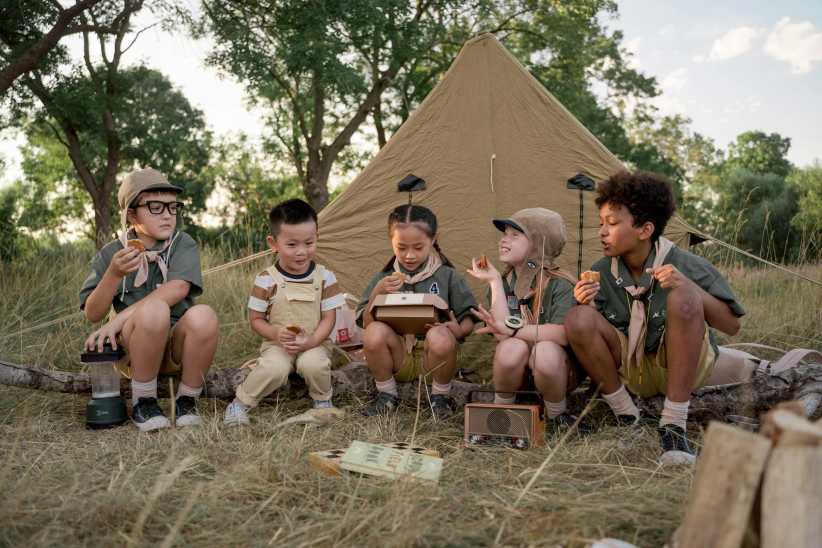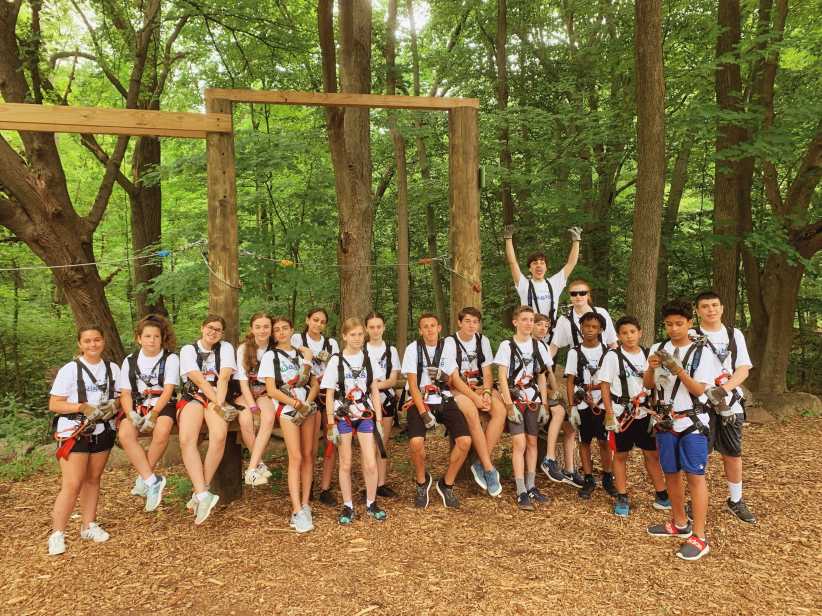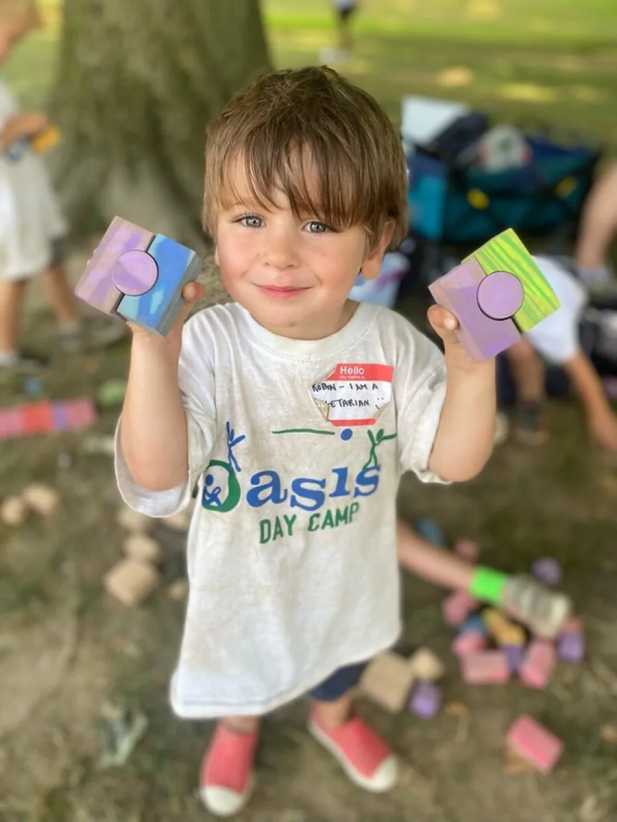1. Involve Your Child—To a Degree
“Obviously, you maybe don’t let the child
pick the exact camp, because they may pick it from the pretty picture in the
brochure and not based on safety or some other issue,” says Jon Malinowski,
Ph.D., camping author and expert. “But the worst thing a parent can do is to
just choose a camp, decide that the child is going to camp and not involve the
child in the process at all. It’s a recipe for a very unhappy, very homesick
child.”
Christopher Thurber, Ph.D., camping author,
says that even with children as young as five, parents can do research ahead of
time, then present a few options, any of which they’d be happy to follow
through with. “You can make it collaborative at any age,” he said. “Just kind
of tailor it to what is developmentally appropriate.”
Alternatively, consider bringing your child
along when you shop for camping supplies, even for things as simple as a new
toothbrush or pair of sneakers. “Don’t go out and get the stuff and come home
and say, ‘Here are the shorts I got you,’” Thurber said. “And your kid is like,
‘Oh my gosh, you’re so dorky.’”
Once you’ve selected a camp, swallow the urge
to burst into tears. Be optimistic and excited for your child, Thurber said.
Your camper might get nervous as opening day approaches—and so might you—but
don’t suggest that if they feel homesick, you’ll come get them. The subtext of
that message, Thurber explained, is that a parent has so little confidence in
his child’s ability to cope with normal feelings that she’ll have to be
rescued.
“Instead, say, ‘Yeah, there probably will be
something you miss about home,’” Thurber said. “‘Almost everyone misses something
about home when they’re away. But I know you can make it, I know you can do
it.”
2. Accreditation
Many camp experts believe that accreditation
is the first thing a parent should look for when evaluating camps.
Unfortunately, this criterion is not as cut-and-dry an issue as parents might
wish. Just because a camp is accredited doesn’t mean it’s good, while a camp
that lacks accreditation isn’t necessarily bad. And finding an accredited camp
certainly doesn’t let a parent off the hook when it comes to doing additional
research.
Accreditation is typically given by the
American Camp Association (ACA). Two highly trained standards visitors, one of
whom is often a camp director, tour the site for about a day, poking through
cabins, prowling in the mess hall and scoping out the waterfront to make sure
the camp meets the association’s approximately 300 safety and health standards.
There’s also a thorough review of paperwork beforehand. (You can read more
about the process on its Web site, www.acacamps.org/accreditation.)
“It is a very intensive, grueling process for
a camp,” said Renee Flax, director of program services for the ACA New York and
a standards visitor. “We’re checking the credentials of the people that are
involved, we’re making sure that their physical site is a safe place for your
child to be. So we’re going into the kitchen, we’re going into the dining room,
we’re going into the bunks.”
Accreditation is not, however, an affirmation
of a program’s quality; health and safety are the main objectives of this
evaluation.
“We are never judging a camp by the program
that it runs,” Flax said. “We don’t care what activities you offer. All we’re
saying is they have to be safe.”
And don’t immediately dismiss camps that
aren’t accredited, either, according to Jon Malinowski.
“I know of some established camps that have
been in business for a long time,” he said. “they do their own thing and don’t
feel a need to be involved with the ACA.” It’s not uncommon for YMCA, Jewish
and Christian fundamentalist camps to pass up accreditation, he explained. The
bottom line, though, is that if a camp isn’t accredited, parents should ask
why.
3. Are People Sticking Around?
Accredited or not, parents should try to find
out if people are coming back. That goes for the director, staff and campers.
A
camp that attracts directors who stay for a long time is probably stable, has a
consistent vision and is generally a fun place to be. But don’t just ask how
long the current director has been around, says Christopher Thurber, who is
also the school psychiatrist at Philips Exeter Academy—the current director
might be a relative newcomer. Instead, ask what the average tenure for
directors has been in the life of the camp.
Also ask about return rates. No camp will
have all its staff or campers return the following year, since many become too
old for the program. But a 70 to 80 percent return rate is “fabulous,”
according to Thurber.
If between 50 and 70 percent of campers and
staff return, that’s “very good.” But if less than half of eligible campers and
staff are choosing to return, it could indicate problems with the camp’s
quality.
A caveat: specialty programs may have lower
return rates by nature. A child might attend a computer camp one summer, for
example, and want to try something different next year.
4. Meet and Greet
We know you’re busy, but once you’ve narrowed
down a short list, be sure to visit camps, or at the very least meet the
director. Many camps offer rookie days or weekends for prospective campers,
according to Joanne Paltrowitz, founder of the advisory service
that the waterfront is safe (can you easily identify who’s in charge?), the
grounds are well kept (is there broken glass underfoot or tools laying around?)
and the bunks meet fire codes (are there fire alarms and fire extinguishers?).
In private camps and Y programs, Paltrowitz
estimated that roughly 90 percent of campers have met the director, either at
the camp or in the prospective camper’s home. “It’s important for bunk
placement. It’s important, I think, for a parent turning over their child to
someone,” she said.
Clara Hemphill, director of
InsideSchools.org, recommends asking what the director does during the rest of
the year. “A lot of the good camp directors are in fact school administrators,”
she said. Also ask about the director’s experience with children, and his or
her vision for the camp.
5. Be Honest About Your Child
Your kid is obviously better than everyone
else’s. But try, when you’re chatting with the director, to give the full
picture.
“Tell [directors] not what you want your child to be, but what your
child really is,” says Flax, of the ACA.
Believe it or not, a director will tell you
if your child won’t fit in, Flax says.
An honest assessment of your child’s
personality will also help the director decide on counselors and bunk
placement.
Honesty means being frank about your child’s
interests and talents as well. And if you have pinpointed something he or she
wants to do, make sure the activity is not just an added bonus listed in the
brochure.
“You need to ask the question, ‘How often
will my child actually get to do that activity?’” suggests author Malinowski.
“They may offer horseback riding, but if it’s only one hour a week, the child’s
going to be disappointed.”
















